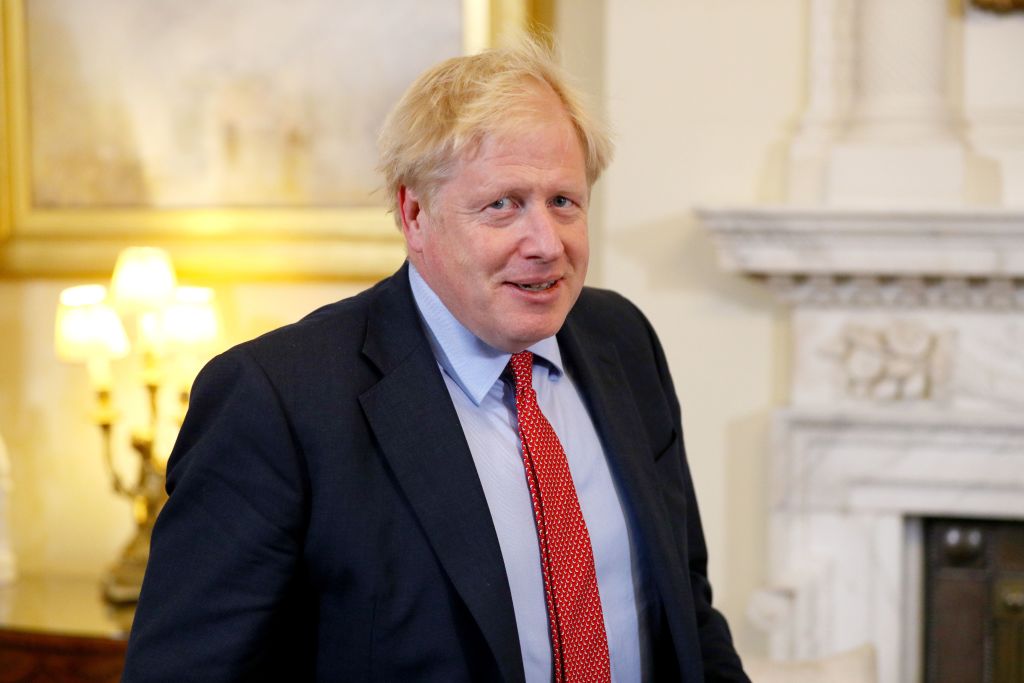Boris Johnson has cancelled his appearance before the Commons Liaison Committee tomorrow morning, arguing that he feels he should devote himself to trying to secure a Brexit deal. In a rather last-minute cancellation, the Prime Minister has written a personal note to the Committee’s chair Dr Sarah Wollaston in which he argues that it would be much better for the MPs to question him when he has been in the job for five to six months, as it did with his predecessors.
This is a valid argument, but it would carry more weight if Johnson had made it from the outset, rather than at the sort of time that students start trying to come up with slightly daft-sounding excuses for not handing in an essay that was set months ago. Wollaston has been pressing the Prime Minister for an evidence session for a good while, and only now has he said that it is too early to hold it.
Tory MPs on the Committee have objected to Wollaston complaining on their behalf, saying they ‘think it is perfectly reasonable of the PM to continue negotiations with the EU at this moment’, adding rather pithily ‘given the delays to Brexit which you yourself have supported we do not see what the urgency is’.
Johnson has given the appearance of being too relaxed about scrutiny over the past few months, with this week’s row about the Withdrawal Agreement Bill’s programme motion being just the latest in a line of incidents which have allowed the Prime Minister’s critics to say he doesn’t want to answer questions. His cancellation will make it easier for those who opposed the programme motion to justify themselves: they can now argue that if Johnson is too frit to take questions from their colleagues, then how on earth could they trust that the legislation was in fit shape to speed through the Commons in the way he was proposing? Of course, this wasn’t the motivation of all those who voted against the government’s timetable. While there were MPs like Ken Clarke who supported the Prime Minister’s deal but felt it would be better to miss the 31 October deadline in order to make sure everything was in the right place, many other MPs merely used the programme motion as a means of frustrating Brexit once again.
The sight of so many MPs suddenly valuing the scrutiny process has been a rather bittersweet one for critics of the way parliament approaches legislation. Even bills with lengthy timetables don’t get the examination they deserve. This is partly because few MPs are skilled in reading and understanding legislative language. Sure, everyone can read 110-odd pages of a bill overnight, but not everyone can spot where the loopholes and unintended consequences are.
MPs don’t receive any formal training in how to do this when they enter parliament. They instead rely on their peer networks, and the party whips, to find out how to vote and what to look for. If you’re a lawyer, you will understand a bill better than many of your colleagues – but you could still lack the antennae to spot a political problem with a policy. But at least lawyers do understand legal language. Many MPs don’t, and the culture of Westminster doesn’t encourage them to change that. Instead, most focus on working towards entering government. Auditioning to join the executive largely means you keep your mouth shut and don’t cause trouble by pointing out problems with the legislation your party is introducing, even if the implications of bad policies ultimately damage your party’s standing with voters. If you’re put on a bill committee where you are supposed to scrutinise legislation line-by-line, you find yourself being told by your whip to shut up, and your researcher turns up at regular intervals with Christmas cards and other administrative chores to keep you busy while the Opposition MPs table amendments which will inevitably be voted down.
It’s a miserable way to waste time and do parliamentary business, but Brexit seems to have awoken a desire among MPs to do their job as legislators a little better. Select committees, including the Liaison Committee – which is made up of chairs of the other committees – are by far the best bit of the way parliament works, developing expertise among MPs and valuing the process of holding ministers to account. They meet outside the Chamber, though. Once inside the Commons, MPs do considerably less scrutiny work. If they really care about this, they’ll need to work on changing the long-term culture of the Commons, rather than just voting down programme motions on bills which contain policies they are desperately trying to stop.







Comments